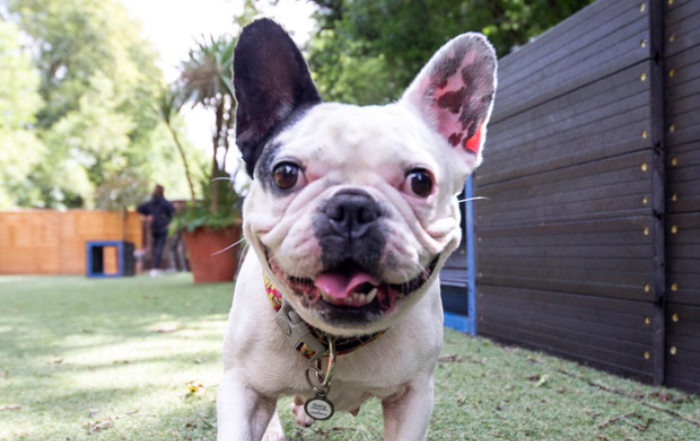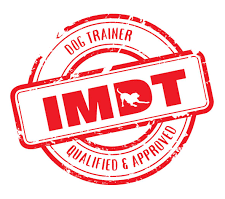After the ‘pros and cons’ lists are tallied up and the family conversations about whether it is the right time to get a puppy have been resolved, there is finally a little set of paws padding around your house and everyone is smitten. However, since this pup’s arrival, you have felt increasingly stressed about how puppy training is going and everyone in the household seems to have a different plan.
The responsibility of training a puppy the correct way
Along with creating precious memories with your new puppy, there is a sense of responsibility that comes with it. You may find yourself asking ‘How can I tell if I am doing the right thing with my puppy?’ or ‘Have I lost my opportunity to train the puppy in the correct way?’. A lot of information states that all members of the family must train and respond to a puppy consistently for it to learn; that adds its own pressures too.
You want a puppy you can be proud of, that you can take anywhere with confidence and to be a family unit in harmony. With everyone in the house behaving differently you may feel that you are not just training a puppy but trying to train the people too because your focus is on everybody training in the same way.
I have trained, lived with, and loved dogs since I was a little boy. I have grown up seeing how they respond to children in a different way to adults and adapt from one person to another. All my experience shows me that the key is not in every member of the family behaving in the same way, but in understanding the way that each individual creates their own relationship with a puppy. This is as true for any family set-up, no matter the age of the children or the roles of each person.
How can I tell what advice to listen to for puppy training?
Just like the infamous ‘Dr Google’ which can lead you down a false path of medical diagnosis, a simple search along the lines of ‘should my family efforts in puppy training be consistent?’ will unearth countless articles that confirm this fear.
My experience with puppies and dogs at Royvon proves that it is more important to focus on some key elements in a dog’s early days rather than the things that can be added further down the line. Like parenting children, it is a case of choosing your battles wisely! Once you have established obedience from your puppy, you can shift your focus.
Your puppy has their own relationship with each member of the family
Regardless of what you do, each member of the family will have their own relationship with your new puppy. If a child gives them rewards for free, then they will have little hope of puppy coming running when calling for them in the park. Your dog will know where to go for a treat and will have a loving relationship with them, but they will not see the need to demonstrate obedient behaviour.
That is not to say that everything can be done differently. Certain areas must be non-negotiable: in circumstances where the puppy must learn appropriate behaviour and will not differentiate between which family member initiates it. A good example is feeding the puppy from the dining table. Your puppy will not mind whose hand the food comes from – it is learning that family dinnertime is an occasion when it can expect to be fed. This leads to begging at the table, regardless of who is sitting down to eat. It is therefore important that all family members adhere to not feeding puppy from the dining table, even when they want to.
Creating a secure, happy environment for puppy training
Likewise, a puppy should feel happy, secure and loved, like any member of the family. Security creates the best environment for learning. Even unintentional behaviour can cause anxiety in a young puppy – raised voices and shouting from parents and overly tight cwtches from children who haven’t learned their own strength yet can leave a puppy frightened that they may be hurt.
By focussing on everyone in the family training in the same way, it can lead to little training at all. Your puppy is learning constantly, looking for guidance while the family is fussing about whether everyone is doing the same thing! Often, I get calls from new dog parents, wanting to book some time at Royvon for puppy training and the emphasis is on having the whole family available to learn together. This pushes the sessions back in the diary and takes the focus away from the puppy’s training on onto the training of the family. My advice is always the same: start now. Come on your own and lay the right foundations for successful training. Waiting only increases the time that a puppy is learning the wrong things. Fast forward eight months; your dog is not so little and the wrong behaviours have more of an impact. Rather than feeling confident about going out as a family unit, your dog is pulling on the lead but cannot be trusted off it. They are too excited by their environment and have learned not to focus on their family when out and about. It doesn’t have to be like this.
Who should lead puppy training in the family?
My recommendation is not to put the big responsibility of puppy training on children, no matter what their age. By demonstrating what you are achieving in your own focussed puppy training you can gain their interest and become a great role model. Once the whole family can see the results of good training it is much easier for children to engage with skills exercises. Focus instead on building trust with all family members, helping your puppy to feel secure and loved. Additionally, make sure that they are learning how to socialise well with other dogs as this is a common issue in adult dogs. I have written an article about socialising your puppy that will help.
Puppies learn through play
At Royvon we believe in learning through play. Like children, puppies are stimulated by fun activities and even formal exercises can be applied in play. Our motto is ‘The way you treat your dog’ – play is not just a method of training, it is a huge treat and this attention and company ensures they only have eyes for you, even when you are out in a stimulating environment.
Along with food, treats, toys and love, it is your attention and playful games that will hold their attention. By strategically using these things as rewards both at home and out and about, your puppy learns that you have a whole array of rewards on offer and they will receive plenty of them if they follow your direction and pay attention. Pairing them with cues and actions allows you and your dog to communicate in all sorts of environments as they develop through life.
By focusing on your relationship with your puppy you get to know each other well and create a strong bond – you will know what excites them and you can use that to reinforce great behaviour or distract them from undesirable behaviour such as mouthing. When your puppy learns that you will give rewards with abundance, they won’t just do what they are told, they will really want to see what direction you are going to give them next.
So, if everyone in the family will have their own relationship with your puppy, what can they do when you are the one focussing on training? The answer is to step back and leave them to it, to let them get on with building their own relationship with the puppy and working on obedience themselves. Do not interfere or offer the puppy any rewards as this leads to other family members having to compete with your own trusted relationship. During a calm moment on a family walk you can demonstrate with the pride the control you have developed on and off the lead and inspire them to achieve the same.
Helping your puppy takes commitment
If your desire is to have an obedient puppy that grows into the dog you were all hoping for, it will take effort. Making sure the effort is put in by the right person who can commit to training will set the groundwork for the rest of the family. If you do the hard work, you make it easier for the whole family to follow.
Royvon offer puppy training for those early days to help you learn the skills you will need to practice together. For older puppies we can take this role on for you and then teach you the essential skills to use with your already-trained puppy. For those who cannot access our support directly, we have a variety of resources within our blog pages and on our YouTube channel.
These early months with your puppy will always be special memories for your family. By taking on the responsibility for training yourself you can move away from confusion and arguments about what each family member is doing, and work towards achieving the happy, obedient dog companion you all dreamed of. The most important thing is to start now, your puppy is waiting and watching!





Leave A Comment